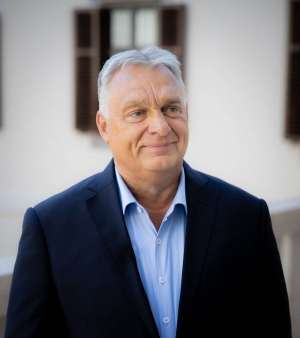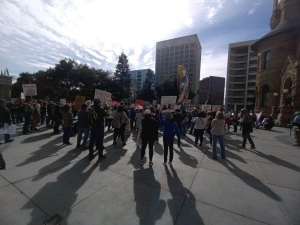• Interview with Adrian Popescu, CEO of the European division of the TMK group
• European countries are looking for solutions to compensate the rise of energy costs
Reporter: What is the weight of electricity costs in the output of TMK in Romania?
Adrian Popescu: In Romania, TMK owns two metallurgical companies which, together, create an integrated technological flow: TMK-Reşiţa - maker of pipes (approximately 400,000 tons/year) and TMK-Artrom - a maker of unwelded steel pipes (almost 200,000 tons a year). 85% of the products made by TMK in Romania are exported to Europe, the USA, the Orient. In the total consolidated costs (according to the IFRS rules), considering the two activities as an integrated flow, electricity represents 7.82% out of the total costs, being the second largest element in terms of cost and size.
Reporter: Do these energy costs hinder or aid the competitiveness of the Romanian TMK companies? What is your opinion on how big these costs are compared to the countries where TMK activates? Is Romanian energy cheaper or more expensive than it is in those countries?
Adrian Popescu: Unfortunately, it would seem that at the moment the TMK units in Romania pay the biggest price for energy resources out of all the divisions of the group, even though, technically, the specific energy consumptions per ton of products, are very effective.
The energy resources in the Romanian divisions are about 40-70% more expensive compared to the TMK divisions in the US or in Russia.
The situation is even more dramatic for natural gas, where, basically, the Romanian units pay almost four times more than the units in the US or in Russia. To eliminate any confusion, I want to mention that we are speaking here about the unit prices for energy, while specific technical consumptions in the Romanian units of TMK are extremely cost effective due to the investments made by the group over the last few years. We have invested in order to achieve very good technical consumptions, but we do not have direct ways to compensate for the increase of energy prices in Romania.
Reporter: What can you tell us about the emissions certificates costs?
Adrian Popescu: The gaps between the global competitors in the metallurgic industry will grow starting next year, due to the EU-ETS emissions trading schemes, and which could cause the price of electricity to increase by an estimated 38% in Romania. Thus, the metallurgic industry in Romania will be increasingly placed at a disadvantage compared to the big producers, like Russia, the US, China, and even some countries in Western Europe. These costs will considerably reduce the chances of staying competitive both within the group, as well as on our traditional markets, where the competition from producers operating in countries without any commitments like the EU-ETS will be hard to beat.
Thus, we can truly speak about a real peril of a competitiveness drop in Romania, as none of the competing countries (the US, Russia, China) have that kind of environmental and energy commitments. In that regard, it is obvious that without a national level solution, which would compensate for the increase of the energy costs after the implementation of the new EU-ETS schemes, there is a real danger of the dramatic drop in the exports of metallurgic products.
The TMK companies in Romania currently export approximately 85% of their output and owe their very existence to this high level of exports.
Unfortunately, this danger of a substantial increase of the emission costs is generalized and applies to almost all of the European producers in several manufacturing sectors. That is precisely the reason why, for the first time, the European Commission recently advised the member states, to identify the possibilities to grant compensations in the amount of energy costs due to the EU-ETS scheme.
In that regard, as a result of the recommendation of the European Commission and at the proposal of the association of manufacturers in the Romanian metallurgy (Uniromsider and Unitub), at the end of July, at the Ministry of the Economy discussions were initiated on that topic. In the debates with the producers associations, the Ministry expressed its willingness to find that kind of solutions.
I think that identifying that kind of solutions should be one of the top priorities of the industrial policy of the government in the coming years. Otherwise, we will see a considerable reduction of some industries which are currently important currency sources through the volume of exports achieved and they still have a considerable number of employees.
As a short term effect, without a clear policy to compensate manufacturers who export for the hike in energy costs generated by the implementation of the EU-ETS schemes to cut emissions, the major metallurgic companies present in Romania will, without exception, turn towards and relocate their manufacturing predominantly in countries which did not make clear commitments or that dramatic towards the reduction of polluting emissions, hence which have lower energy costs, to be able to deal with competition from countries which did not develop measures to reduce emissions or developed them with minimal negative effects on energy.
As a paradox of this situation, the loss of the market segments by the industries in the European Union will shift towards the producers in countries without any ambitious commitments towards reducing global pollution, which will lead to an increase in production precisely in the countries which pollute the most, which is the opposite of what is desired, through all these emission reduction mechanisms.
Reporter: How big are the total investments of the TMK group in Romania? What percentage of the total investments was dedicated to improving efficiency and reducing energy consumption?
Adrian Popescu: Over the last few years, TMK invested over 140 million US dollars in its two Romanian plants, as well as share capital increases with cash contributions of over 70 million US dollars. These investments were directed towards increasing productivity, technological performance and product quality. Investments were also directed towards operating safety, increasing energy efficiency and environmental protection. The investments which were purely intended towards increasing energy efficiency amount to about 7 million dollars.
Reporter: Thank you!



























































